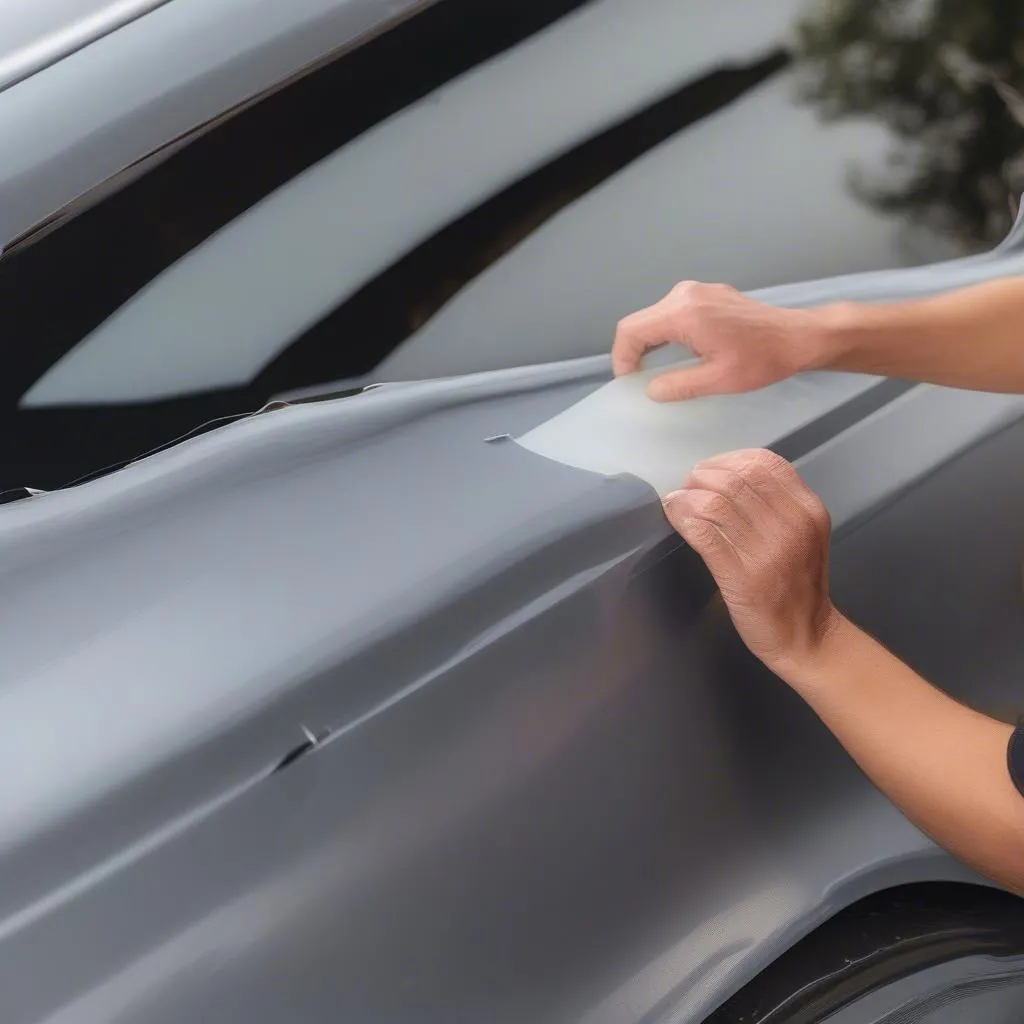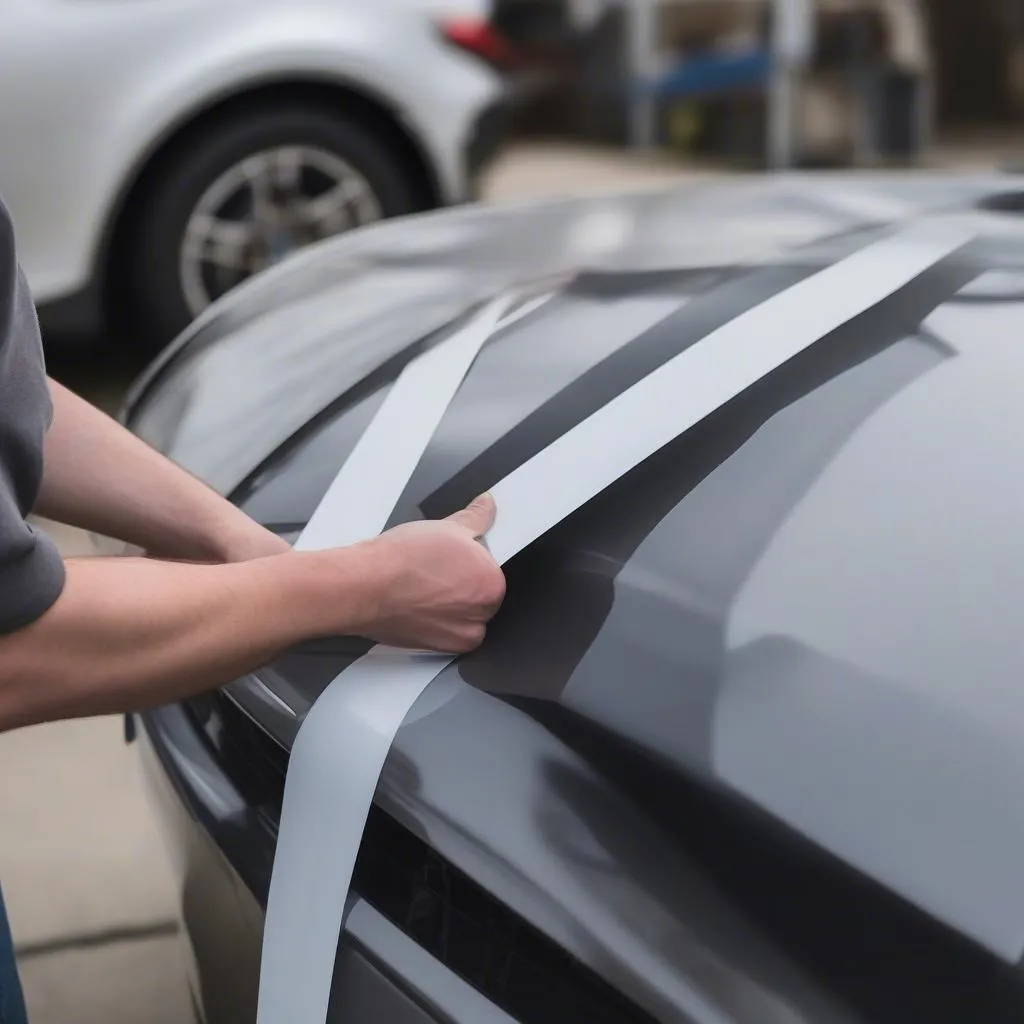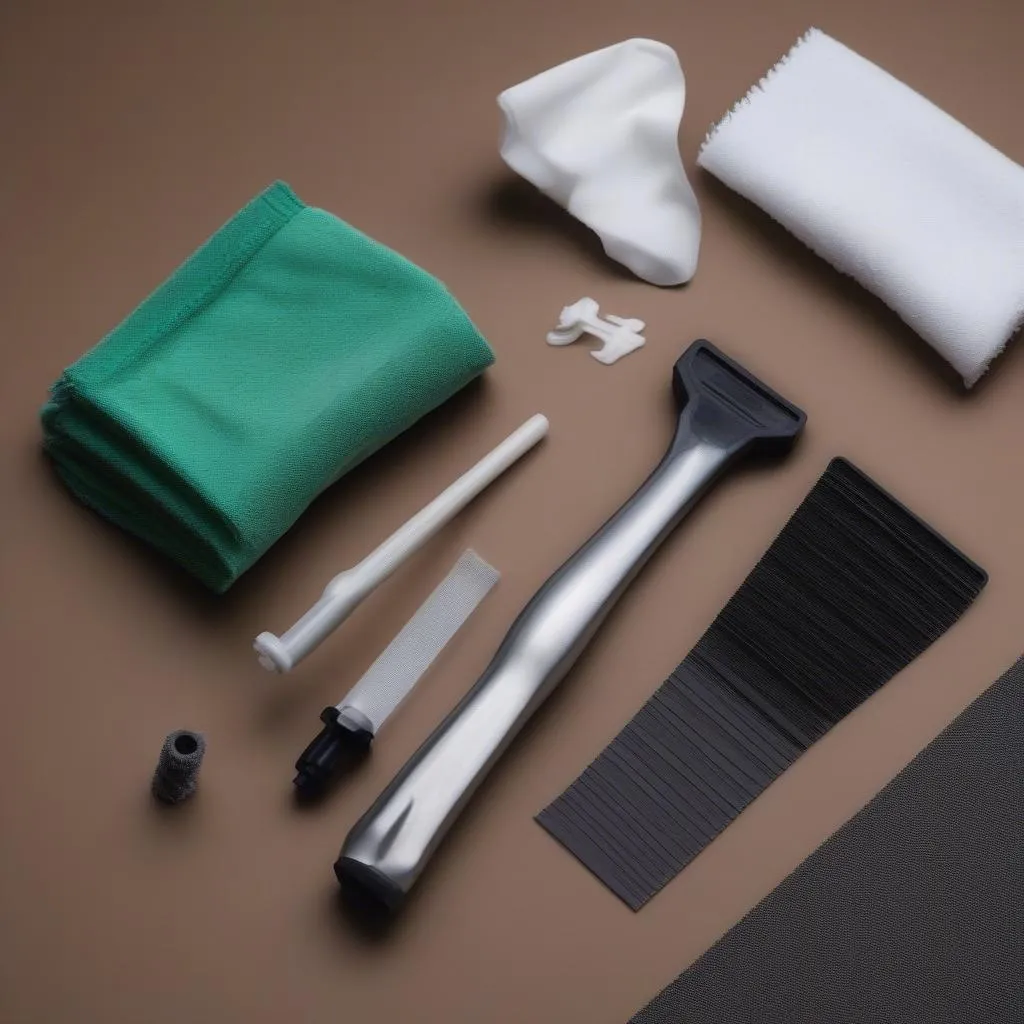Let’s face it, a car spoiler can really make your ride stand out. It adds a touch of sportiness and improves aerodynamics, but the real test comes when you’re ready to install it. You need the right adhesive to ensure a strong, long-lasting bond, but with so many options available, how do you choose the best one?
Why Choosing the Right Adhesive Matters
Remember that time you tried to stick a poster on your wall with regular tape and it just fell down? Well, choosing the wrong adhesive for your spoiler is like using that flimsy tape. It’s not just about aesthetics; it’s about safety. A poorly installed spoiler can easily detach at high speeds, causing damage to your car and potentially endangering yourself and other drivers.
Understanding Your Needs:
1. Spoiler Material:
Before diving into adhesives, you need to know what your spoiler is made of. Is it made of ABS plastic, fiberglass, carbon fiber, or something else? This influences the type of adhesive you’ll need. For example, a fiberglass spoiler might require a stronger adhesive than one made of ABS plastic.
2. Surface Type:
Next, consider the material of your car’s trunk lid. Is it painted steel, aluminum, or carbon fiber? Each material has its own unique surface properties that affect adhesive bonding strength. You’ll need an adhesive that adheres well to the specific surface of your car.
3. Environmental Factors:
Think about where you live and how your car is exposed to the elements. Extreme temperatures, humidity, and UV rays can affect the performance of adhesives. You’ll need an adhesive that can withstand these conditions and maintain its bond.
4. Strength and Durability:
The adhesive should be strong enough to withstand the stress and forces your spoiler will encounter during driving. A strong bond is essential, especially if your spoiler is large or experiences a lot of wind resistance.
Best Adhesives for Car Spoilers:
1. Epoxy Adhesive:
Epoxy is a popular choice for car spoilers due to its excellent bonding strength and resistance to water, heat, and chemicals. It’s also incredibly versatile, adhering well to a wide range of materials like metal, plastic, and fiberglass.
Pros:
- Strong Bond: Epoxy forms a strong bond that can withstand high forces.
- Waterproof and Heat Resistant: It’s a great option for outdoor use.
- Versatility: Works on a variety of spoiler and car materials.
Cons:
- Curing Time: Epoxy takes longer to cure compared to other adhesives.
- Messy Application: It can be difficult to work with, especially for beginners.
Real-World Example:
Let’s imagine you’re installing a carbon fiber spoiler on your Porsche 911. A high-performance sports car like this requires a strong adhesive that can withstand high speeds and harsh driving conditions. Epoxy adhesive would be a perfect choice due to its exceptional bonding strength and resistance to extreme temperatures.
Expert Opinion:
“For maximum adhesion and durability, epoxy is a superior choice. It creates a strong, water-resistant bond that can withstand years of wear and tear,” says Dr. Sarah Johnson, a renowned automotive engineer in Germany.
2. Polyurethane Adhesive:
Polyurethane adhesive is another popular option for car spoilers. It’s known for its flexibility and ability to adhere well to various surfaces, including painted steel, aluminum, and plastic.
Pros:
- Flexible: It allows for some movement, preventing stress fractures and helping to maintain the bond.
- Strong Bond: Creates a durable bond on a variety of materials.
- Easy Application: It’s often easier to work with than epoxy.
Cons:
- Less Strong than Epoxy: May not be the best choice for high-stress applications.
- Less Water Resistant than Epoxy: May be susceptible to moisture damage in extreme conditions.
Real-World Example:
You’re installing a simple ABS plastic spoiler on your Honda Civic. It’s a small spoiler that won’t experience extreme forces, and you want an adhesive that’s easy to use. Polyurethane adhesive is a good option in this case due to its ease of application and flexible bond.
Expert Opinion:
“Polyurethane is a versatile adhesive that offers a good balance of strength and flexibility, making it a suitable choice for most car spoilers,” suggests Mr. David Lee, a veteran auto body technician in the United States.
3. Double-Sided Tape:
Double-sided tape can be a viable option for lightweight spoilers, especially those made of ABS plastic. It’s often a quicker and easier installation method, but it may not be the strongest option for all applications.
Pros:
- Easy Application: No messy mixing or curing times.
- Quick Installation: Fast and convenient.
- Less Expensive: Often cheaper than other adhesive options.
Cons:
- Limited Strength: May not be suitable for heavy spoilers or high-stress applications.
- Temperature Sensitivity: Can be affected by extreme temperatures.
- May Not Adhere Well to All Surfaces: Check compatibility before using.
Real-World Example:
You’re adding a small spoiler to your Toyota Corolla. It’s a lightweight spoiler, and you’re looking for a fast and easy installation method. Double-sided tape could be a good option in this situation, but you’ll need to make sure it’s compatible with your car’s surface and the spoiler material.
Expert Opinion:
“While double-sided tape can be a quick and easy solution for light spoilers, it’s important to use a high-quality tape that is specifically designed for automotive applications,” advises Mr. Mark Thompson, a renowned auto body repair specialist in London.
Tips for Choosing the Best Adhesive for Your Car Spoiler:
-
Read the Manufacturer’s Instructions: Each adhesive has its own specific instructions, so it’s crucial to read them carefully before using the product.
-
Consider the Climate: The adhesive should be suitable for the climate you live in.
-
Test the Adhesive: Before applying it to your spoiler, test it on a hidden area of your car’s trunk lid to ensure compatibility.
-
Prepare the Surfaces: Clean both the spoiler and the trunk lid thoroughly with rubbing alcohol or a similar cleaner to remove dirt, grease, and debris.
-
Apply the Adhesive Evenly: Use a roller or a spatula to ensure that the adhesive is spread evenly.
-
Allow the Adhesive to Cure Properly: Don’t rush the curing process. Give the adhesive enough time to fully harden before driving your car.
FAQs about Car Spoiler Adhesives:
Can I use regular super glue for my car spoiler?
No! Super glue is not recommended for car spoilers. It’s not durable enough to withstand the forces involved in driving. It may also yellow or crack over time.
How long does it take for the adhesive to cure?
The curing time depends on the type of adhesive you use. Epoxy adhesive typically takes 24-48 hours to fully cure, while polyurethane adhesive may take 12-24 hours. Double-sided tape often has a much shorter curing time, but it’s still essential to follow the manufacturer’s instructions.
Can I remove the spoiler later if I need to?
Yes, most adhesives can be removed without damaging your car’s paint if you follow the manufacturer’s instructions. However, it’s best to choose an adhesive that’s specifically designed for automotive applications, as it will be easier to remove and less likely to damage your car.
What are some other factors to consider when choosing an adhesive?
-
Price: Adhesives range in price, so it’s important to consider your budget.
-
Durability: The adhesive should be durable enough to withstand the elements and the stress of driving.
-
Ease of Application: Some adhesives are easier to apply than others.
-
Cleanliness: Some adhesives are easier to clean up than others.
Conclusion:
Choosing the right adhesive is crucial for a successful and safe car spoiler installation. By understanding your needs and following the tips outlined in this guide, you can ensure a strong, long-lasting bond that will keep your spoiler securely in place. Remember, the best adhesive is the one that’s specifically designed for your car’s surface, the spoiler material, and the environmental conditions you live in.
 car-spoiler-adhesive-epoxy
car-spoiler-adhesive-epoxy
 car-spoiler-double-sided-tape-installation
car-spoiler-double-sided-tape-installation
 car-spoiler-installation-tools-set
car-spoiler-installation-tools-set
Still have questions about car spoiler adhesives? Contact us via Whatsapp: +84767531508 for professional support 24/7. Our team of experts can help you choose the right adhesive for your specific needs.
Want to learn more about car spoilers? Check out our other articles:
- Car Spoiler Lip: Everything You Need to Know
- How to Install a Car Spoiler
- Best Car Spoilers for Performance
We hope this guide helps you find the perfect adhesive for your car spoiler!
